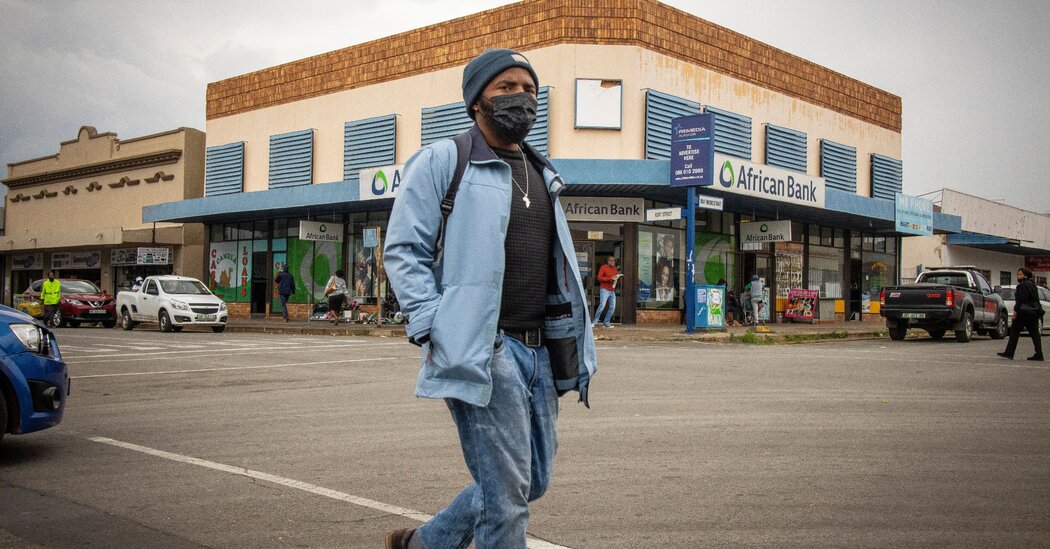
A number of countries — including Britain, Israel, Italy and Singapore — were moving on Friday to restrict travel from South Africa and other countries in the region, a day after South African authorities identified a concerning new coronavirus variant with mutations that one scientist said marked a “big jump in evolution.”
In the past, governments have taken days, weeks or months to issue travel restrictions in response to new variants. This time, restrictions came within hours of South Africa’s announcement — and hours before health officials from the country were scheduled to discuss the variant with the World Health Organization.
Britain and Israel announced bans on flights from South Africa and several neighboring countries on Thursday, citing the threat of the new variant. Britain’s flight ban applies to six countries — South Africa, Botswana, Eswatini, Lesotho, Namibia and Zimbabwe — and begins at noon local time on Friday.
“More data is needed but we’re taking precautions now,” Sajid Javid, the British health secretary, said on Twitter.
The governments of Italy, Malta, the Netherlands, Singapore and Tokyo announced on Friday that they would impose similar restrictions. Markets were down in Japan in response to the variant’s discovery, and officials in Australia and in New Zealand said that they were monitoring it closely.
“Our scientists are at work to study the new B.1.1.529 variant,” Italy’s health minister, Roberto Speranza, said in a statement, using the variant’s scientific name. “Meanwhile we err on the side of caution.”
Ursula von der Leyen, the president of the European Union’s executive arm, also said in a Twitter post on Friday morning that it would propose restricting air travel to European countries from southern Africa because of concerns about the variant.
In the past two days, scientists detected the variant after observing an increase in infections in South Africa’s economic hub surrounding Johannesburg. So far only a few dozen cases have been identified in South Africa, Hong Kong, Israel and Botswana.
A number of variants have emerged since the onset of the pandemic. One underlying concern about them is whether they will stymie the fight against the virus or limit the effectiveness of vaccines. South African scientists will meet with the World Health Organization technical team on Friday to discuss the new variant, and the authorities will assign it a letter of the Greek alphabet.
In a statement posted on Friday on a government website, South Africa said it would urge Britain to reconsider its travel restrictions, saying: “The U.K.’s decision to temporarily ban South Africans from entering the U.K. seems to have been rushed, as even the World Health Organization is yet to advise on the next steps.”
In December last year, South Africa was the first nation to report the appearance of the Beta variant, which has now spread to nearly 70 countries. Scientists have been concerned that some clinical trials have shown that vaccines offer less protection against the Beta variant. Since then, the more virulent and aggressive Delta variant has spread all over the world and is believed to be fueling the latest surge in cases.
With over 1,200 new infections, South Africa’s daily infection rate is much lower than that in Germany, where new cases are driving a wave. However, the density of mutations on this new variant raises fears that it could be highly contagious, leading scientists to sound the alarm early.
“This variant did surprise us — it has a big jump in evolution, many more mutations than we expected, especially after a very severe third wave of Delta,” said Tulio de Oliveira, director of the KwaZulu-Natal Research and Innovation Sequencing Platform.
Emma Bubola and John Yoon contributed reporting.







